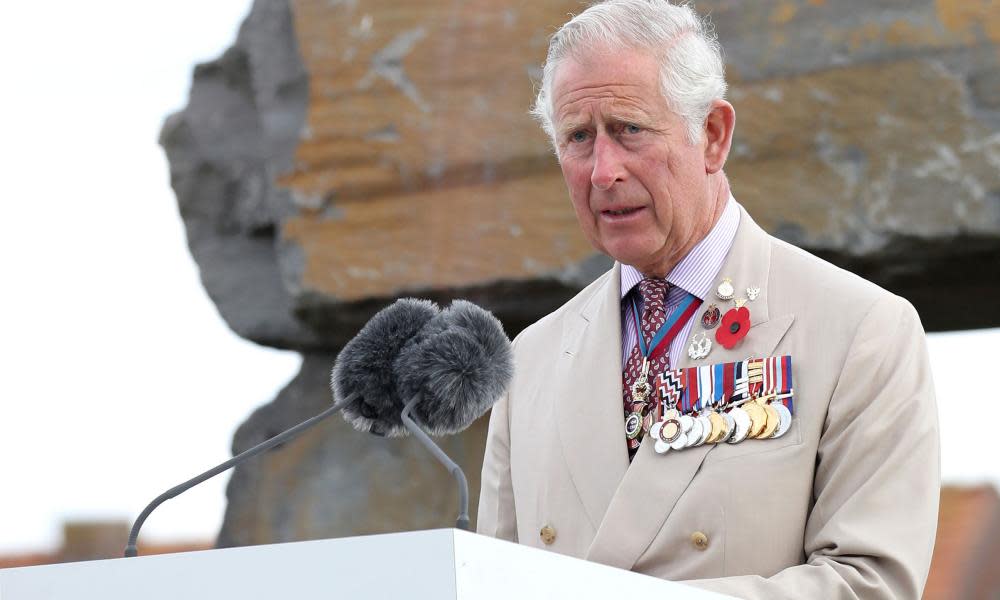Clarence House should release Prince Charles’s Scottish spider memos | David McClure

Prince Charles’s black spider memos are now crawling into the realm of Scottish politics. After penning these in his scratchy hand on everything from foxhunting in the English shires to the National Gallery extension in London, the Duke of Rothesay (as he is known north of the border) has turned his quill to matters close to Caledonian hearts: keeping educational standards high.
The Guardian revealed on Monday that Scottish ministers have refused to release documents allegedly showing that the prince and his office had lobbied them in 2012 to reform the teacher training system. He was acting on behalf of the charity Teach First, of which he is patron and which now hopes to win a contract for a £1m scheme to fast-track university graduates through a six-week course with on-the-job training, in preference to the full one-year diploma. The charity has already done similar work in England and Wales, where it earns £2,600 for each recruit.
Not surprisingly this has provoked a swift rebuke in the Scottish parliament. Calling for a debate on the disclosures, Iain Gray, Scottish Labour’s education spokesman, argued that the pattern of communication with Teach First and the prince “can only raise questions of policy being made as a result of pressure, and these concerns must be dispelled or otherwise by disclosure of the correspondence”, while Patrick Harvie, the Scottish Green party co-leader, demanded a “pretty robust” scrutiny of ministers as to why they decided to invoke a special exemption for the royal family under the Scottish freedom of information laws.
South of the border, Maurice Frankel, director of the Campaign for Freedom of Information, saw a potential conflict of interest in the fact that Teach First earns a fee for every trainee recruited: “Those who seek to influence government policy must understand that the public have a right to know what they are doing.”
Until the letters (as well as the Scottish government’s briefing papers) are made public there is no way of knowing whether there is a real conflict of interest in the prince’s role in the affair. It should be remembered that when the last batch of his memos was released in May 2015 – after a long and expensive campaign by the Guardian – the black spiders proved relatively tame: just the prince sounding off on a few of his pet projects, from the culling of badgers to the survival of the Patagonian toothfish.
One might be forgiven for thinking – in this matter at least – that Holyrood has been overcome by a form of Scottish Shintoism
The more interesting issue is why Holyrood as much as Clarence House has been so secretive over the correspondence. In the past, the Scottish parliament has seemed proud of having a slightly more liberal approach to freedom of information when it comes to the royals. In Scotland the law allows the royal exemption to be overturned in the public interest, but in this case the test has not been invoked.
One might be forgiven for thinking – in this matter at least – that Holyrood has been overcome by a form of Scottish Shintoism and the government is just repeating the fawning of ministers south of the border.
In his recent memoirs, Kenneth Clarke, the former chancellor, detected this tendency among his cabinet colleagues when he tried to decommission the Royal Yacht Britannia: “Most politicians are so in awe of the royal family that expressions of displeasure from the palace about issues bearing directly on the family can usually produce quite significant policy shifts.”
The crucial question about the prince’s political activism – be it the reform of Scottish teacher training or GM crops – is whether the lobbying actually changes policy decisions. Here, sunlight is the best disinfectant. Since it is unlikely that the prince will ever change his spots after many decades of politicking, the most sensible approach would be to have the debate totally in the open and have his ideas rigorously tested – even in media interviews.
In the case of Scotland, the public interest defence should be invoked to allow all the documentation on the teacher training lobbying to be published as an alternative to the long wait for the opposition parties to shame the information out of the executive.
In the meantime – if the prince’s letters on Scottish education policy are as innocuous as those on the Patagonian toothfish – then why can’t Clarence House just release the black spiders?
• David McClure is the author of Royal Legacy

 Yahoo News
Yahoo News 
